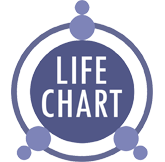Human Design is based on understanding how people interact through channels and gates that form specific contours. The Tribal group of contours is one of the oldest mechanisms, ensuring survival and mutual support within a community. These contours help us tackle life’s challenges by managing resources, caring for loved ones, and maintaining stability. In this article, we will explore how the two main aspects of the Tribal group—Ego Contour and Protection Contour—impact our lives, relationships, and personal responsibility.
Ego Contour: Resource Distribution and Protecting Interests
The Ego Contour embodies the management of material and social resources within a close circle. Individuals with activated channels in this contour often take on the role of organizer and distributor of resources, ensuring the group’s stability and well-being. Key questions include: how to manage money effectively, how to protect the interests of family or community, and how to lay the foundation for the future.
Our job is not just to earn money but to make sure it brings real benefits to our loved ones. After all, wealth without family support is just numbers.
Example:
Irene has always taken on the responsibility for her family’s financial well-being. Her activated channel 45-21 (the money channel) allowed her to successfully manage the family business, creating a stable income. When the family faced challenges, Irene knew exactly how to navigate through tough situations. She clearly delegated tasks among family members, strengthening not only their financial foundation but also the trust between them.
People with this channel often feel that material stability is key to maintaining order and success for the entire group.
Protection Contour: Caring for and Supporting Loved Ones in Tough Times
This contour is responsible for deep personal support, both physically and emotionally. Individuals with activated Protection channels play the role of “guardians,” caring for those in need, whether it’s children, elderly family members, or partners. These are the people who ensure safety and comfort for their loved ones during challenging periods.
The strength of a family lies not in the number of its members, but in our willingness to support one another. When one is weak, another becomes their strength.
Example:
Alex, a father of two, was always ready to help his family. His activated channel 27-50 (the Caring channel) defined him as someone willing to sacrifice his time and energy for the well-being of others. When his daughter fell seriously ill, Alex didn’t hesitate—he devoted himself entirely to her treatment and care, providing emotional support for the entire family.
This channel is often found in individuals who are deeply invested in caring for loved ones and feel a moral obligation to ensure their well-being.
How Tribal Contours Influence Relationships
People with activated Tribal channels often feel responsible for those around them—whether family, colleagues, or friends. This isn’t just care; it’s a drive to organize and maintain stability, both financially and emotionally.
My strength lies in helping others. The more I do for those around me, the more support I receive in return. It’s a cycle of help that nourishes everyone involved.
Material Resources as the Foundation of Stability in Tribal Contours
In today’s world, Tribal contours often manifest through the management of material resources. Individuals with activated Ego and Protection channels strive to provide for everyone’s needs, from income distribution to establishing future stability.
Money is not just a tool for living; it’s a way to ensure confidence in tomorrow for our loved ones.
Challenges and Difficulties for Tribal Contour Holders
However, individuals with active Tribal channels can sometimes face challenges. They may feel the pressure of responsibility, leading to burnout if they don’t learn to delegate tasks and care for themselves.
I always aimed to help everyone around me, but over time I realized I couldn’t carry it all myself. I learned to delegate and listen to my own needs.
Excessive involvement in caring for others can lead to emotional exhaustion. It’s important to remember the balance between helping loved ones and taking care of one’s own well-being.
Conclusion: Tribal Contours as the Foundation of Mutual Support and Stability
The Tribal group of contours in Human Design serves as the foundation for building deep and lasting connections with those around us. It’s a system where care and support play crucial roles, helping people feel part of something greater—a community that protects and uplifts each other.
If you have activated Tribal channels or gates, pay attention to how this theme manifests in your life. You’re likely already taking on responsibility for the well-being of others, but don’t forget to carve out time for self-care.
Tribal connections are the foundation of our strength. When we care for our loved ones, we become stronger ourselves.
To better understand your channels and gates, consider the contexts of the Tribal group when analyzing your Bodygraph.

